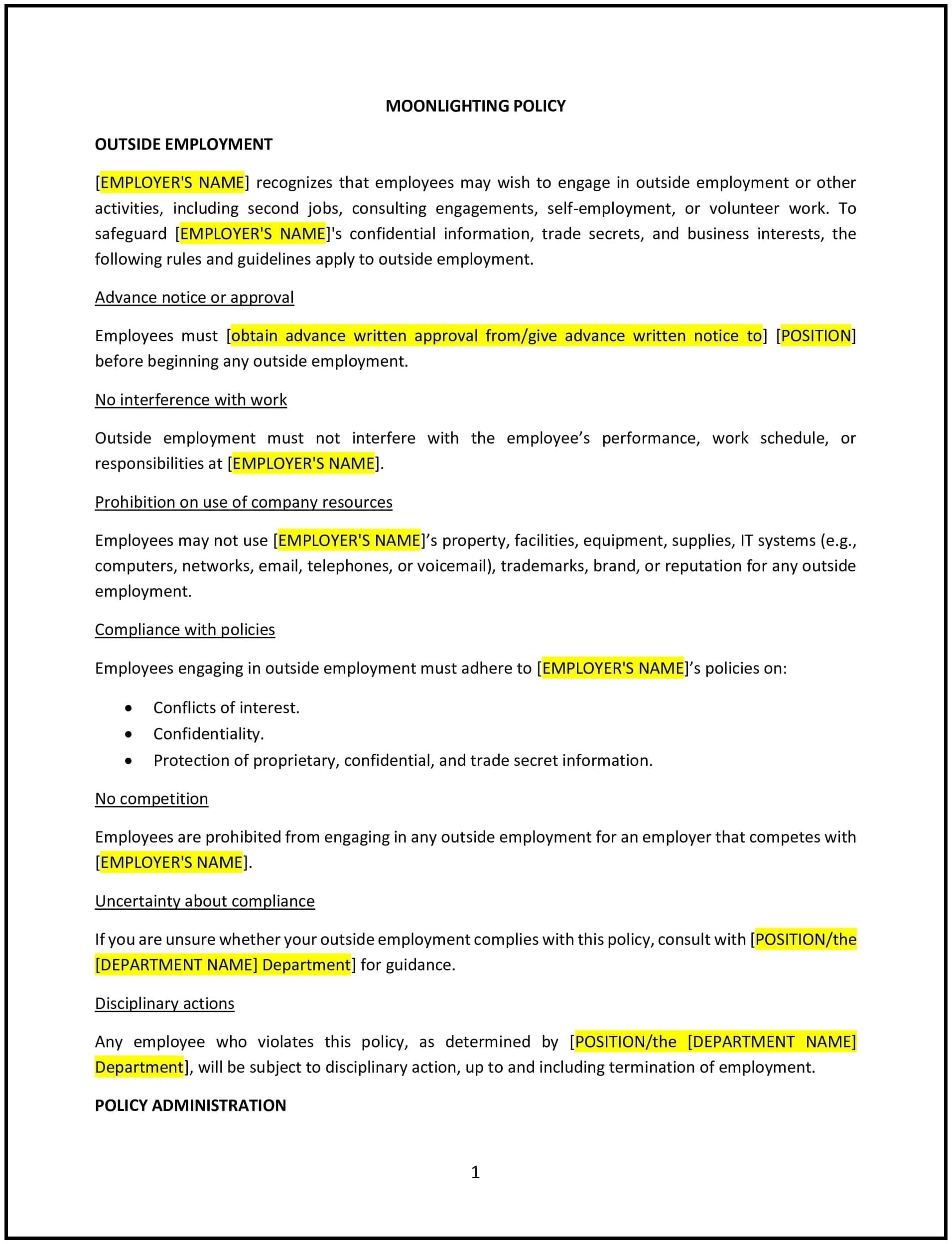Got contracts to review? While you're here for policies, let Cobrief make contract review effortless—start your free review now.

Customize this template for free
Moonlighting policy (Wisconsin)
A moonlighting policy helps Wisconsin businesses address employees engaging in outside employment while ensuring it does not conflict with their primary job responsibilities. This policy outlines expectations regarding outside work, including restrictions, disclosure requirements, and how moonlighting may affect an employee's performance, availability, or compliance with company policies.
By implementing this policy, businesses can maintain focus on employee productivity, prevent conflicts of interest, and protect the company's reputation.
How to use this moonlighting policy (Wisconsin)
- Define moonlighting: Clearly outline what constitutes moonlighting, such as any secondary job, freelance work, or business ventures that occur outside the employee's primary job.
- Establish disclosure requirements: Require employees to disclose any outside employment that could affect their job performance or create a conflict of interest.
- Set restrictions: Specify any restrictions on outside work, such as not engaging in work that directly competes with the company or involves using company resources.
- Address performance and availability: Include guidelines on how outside employment should not interfere with the employee’s performance, availability, or job duties.
- Protect confidential information: Ensure employees understand that they are prohibited from using company resources, intellectual property, or confidential information in their outside employment.
- Include enforcement measures: Detail consequences for failing to disclose outside employment or engaging in prohibited activities, which may include disciplinary actions.
Benefits of using this moonlighting policy (Wisconsin)
This policy offers several benefits for Wisconsin businesses:
- Prevents conflicts of interest: Ensures that outside work does not interfere with the company’s interests or create competition.
- Promotes productivity: Helps ensure that employees remain focused and committed to their primary job duties without distractions from secondary employment.
- Protects company resources: Safeguards company information, intellectual property, and other resources from being misused in outside work.
- Reduces legal risks: Mitigates the risk of legal disputes or conflicts arising from outside employment that may breach company policies or contracts.
- Enhances transparency: Encourages openness and communication between employees and management about outside employment, fostering trust and clarity.
Tips for using this moonlighting policy (Wisconsin)
- Communicate the policy clearly: Ensure all employees are aware of the policy, including the requirements for disclosing outside employment and the potential restrictions.
- Monitor compliance: Track disclosures of outside employment and ensure that employees adhere to the policy.
- Encourage transparency: Create an open environment where employees feel comfortable discussing their outside work and how it might impact their primary responsibilities.
- Address concerns promptly: If outside employment appears to interfere with performance, address the issue with the employee early to prevent any further complications.
- Review regularly: Revise the policy as needed to ensure it reflects changes in Wisconsin laws, business needs, or industry practices.